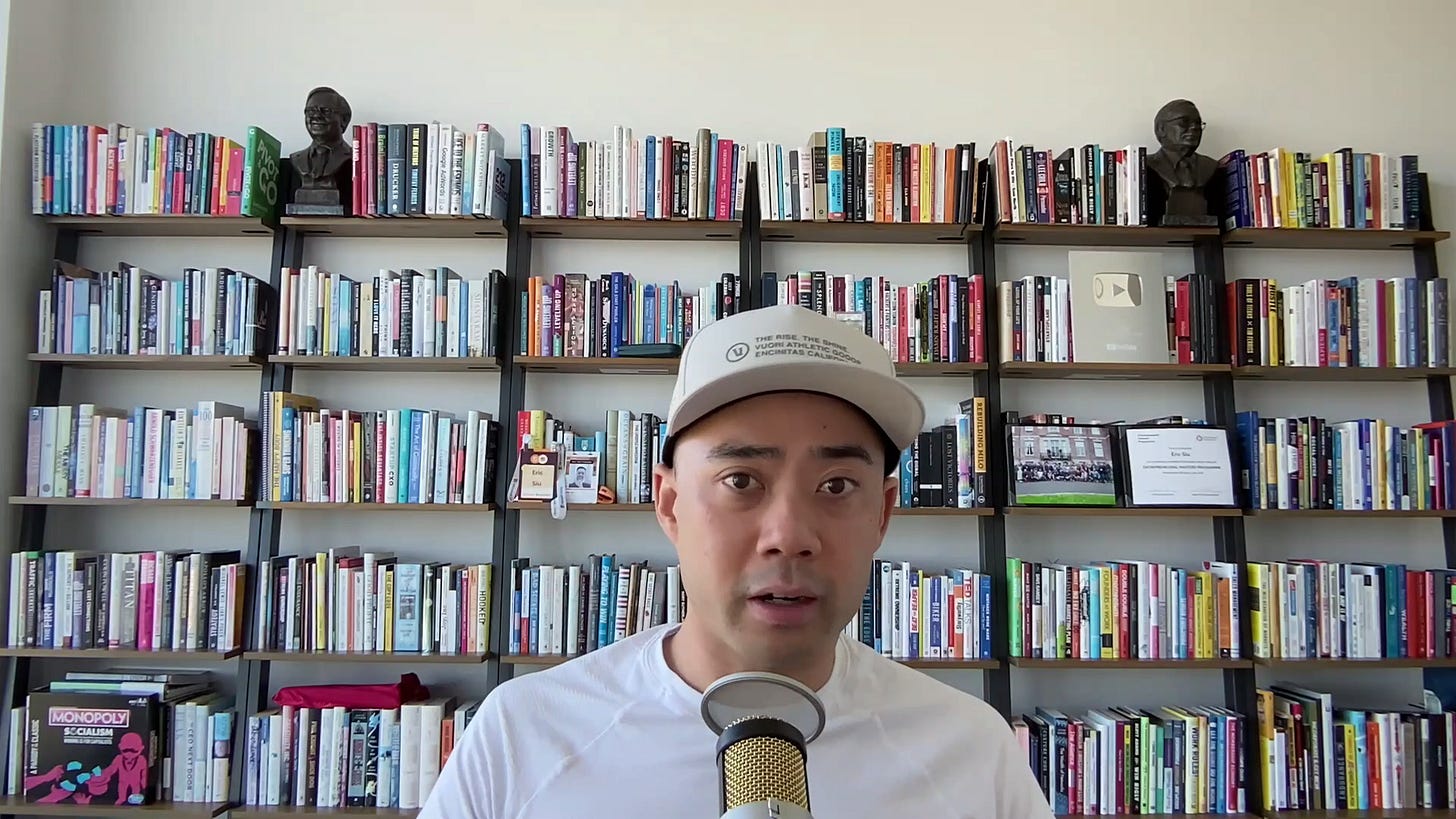How Eric Siu leveraged his hugely popular podcasts to grow his ad agency
He doesn’t bother with traditional media monetization models like advertising or subscriptions.
Eric Siu has a pretty massive audience; his YouTube channel boasts 161,000 subscribers and his two podcasts — Marketing School and Leveling Up — have generated tens of millions of downloads.
But Eric doesn’t bother with traditional media monetization models like advertising or subscriptions. Instead, he leverages his influence to drive clients to Single Grain, a marketing agency he owns. As that business grew, he was able to acquire more agencies and add to Single Grain’s capabilities, and it now works with some of the world’s largest brands.
In a recent interview, Eric explained how he met his co-host, where he found his audience, and why he chose to monetize his content with a services business:
So I had an agency where the work we were doing no longer worked. It was an SEO agency, right? And so the work we were doing no longer worked. It was ineffective. And so I had to figure out, okay, not only am I doing this podcast right now, but how do I save this company? But also, by the way, I have no operating experience. So I actually made the company go from bad to worse around 2014 to 2015. We actually dropped all the way down to one employee. But thank God for SEO because we started ranking number one for the keyword ‘digital marketing agency.’
So we started getting all these leads that we couldn't fulfill. And I ended up referring all these leads out to other agencies because we would take like a 25 to 30% recurring affiliate commission on it. So SEO really saved the business. And then we took those cash flows and then we were fortunate enough to hire some amazing people. And then from there, the company just kind of took off. While I was doing the podcast, I was really locked in on trying to save this thing.
Watch the interview in the video embedded below:

